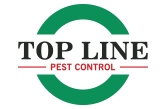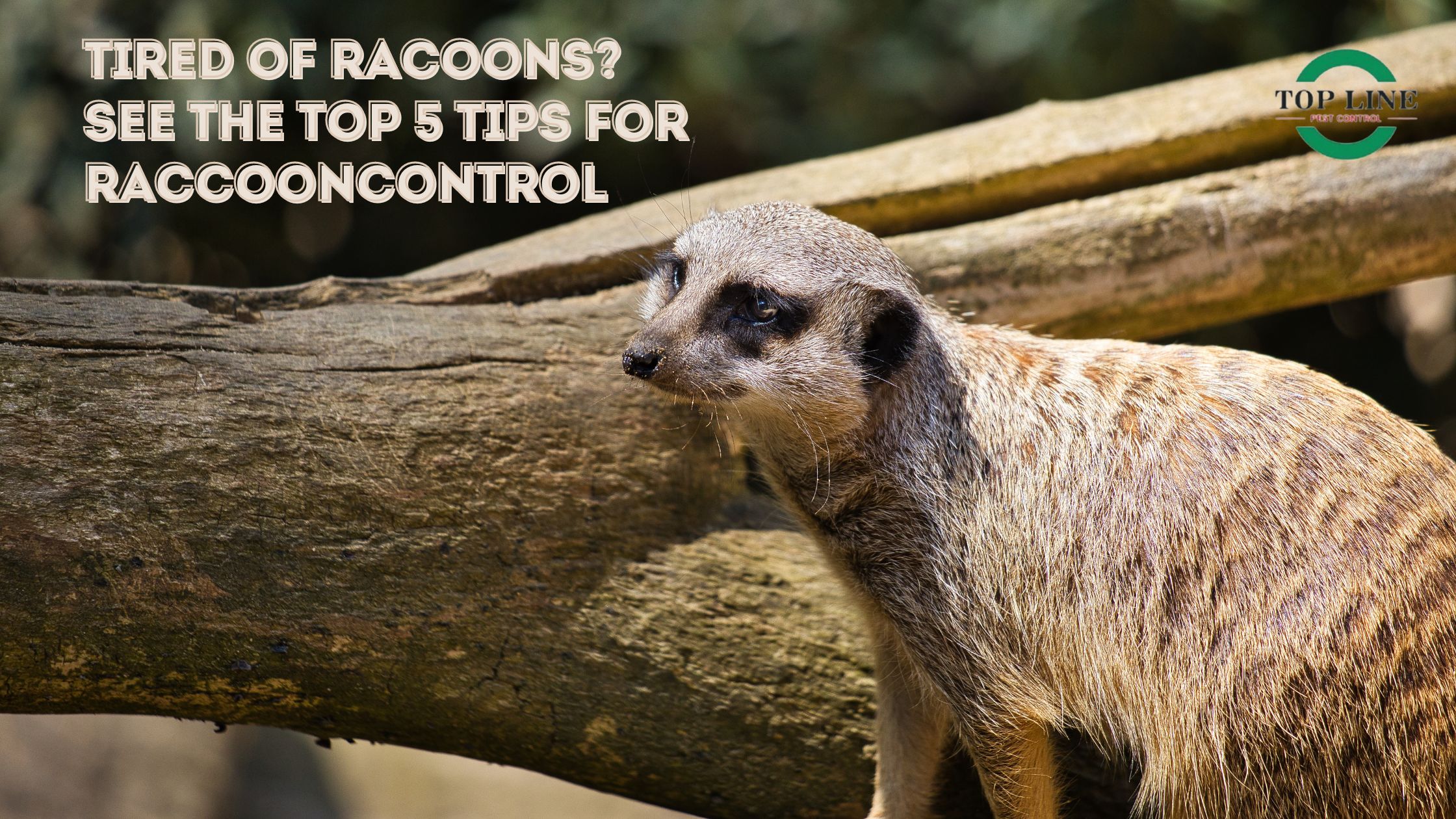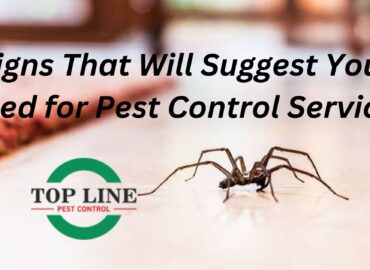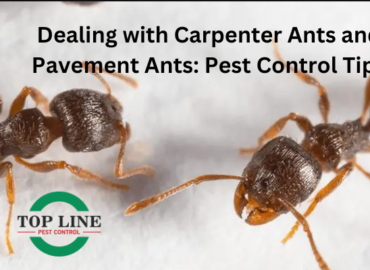Raccoons, with their distinctive black masks and clever behavior, may look adorable from a distance, but they can cause significant problems if they invade your property. These nocturnal creatures often scavenge trash, damage structures, and pose health risks to your family and pets. To protect your home and keep raccoons at bay, follow these expert tips for effective raccoon control.
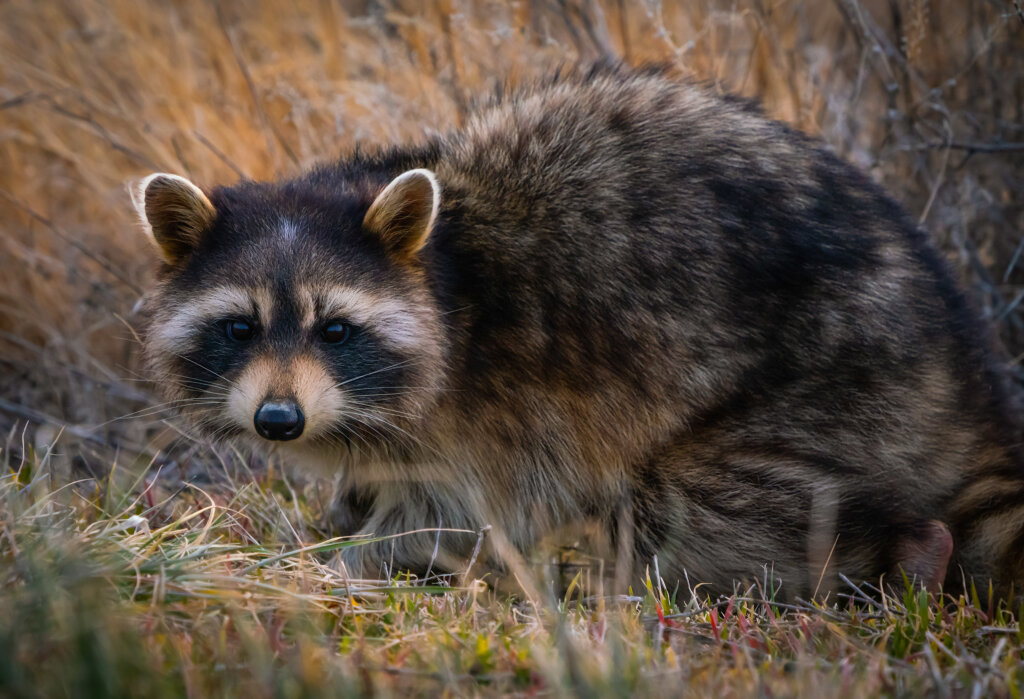
Top 5 Tips for Raccoon Control
Raccoons can be persistent and destructive pests, often invading homes, attics, and yards in search of food and shelter. Effective raccoon control involves sealing entry points, removing food sources, and using humane deterrents. Trimming tree branches near your roof and installing motion-activated lights can also help keep these clever creatures at bay.
1. Secure Trash and Food Sources
Raccoons are opportunistic feeders, and easy access to food can attract raccoons to your property. To reduce the chances of a raccoon problem:
- Use Tight-Fitting Garbage Lids: Invest in raccoon-proof trash cans with secure, tight-fitting lids.
- Store Trash Properly: Keep garbage cans inside a secure location, such as a garage or shed, until collection day.
- Remove Food Sources: Never leave pet food outside overnight, as raccoons are nocturnal and most active after dark.
- Clean Bird Feeders: Regularly clean up spilled birdseed from feeders, as it can attract raccoons.
- Compost Carefully: Ensure compost bins are sealed tightly to prevent raccoons from accessing decomposing food.
2. Eliminate Shelter Opportunities
Mother raccoons often seek cozy and safe spots to raise their young. Protect your home by making it less inviting for raccoons to nest:
- Seal Entry Points: Inspect your home for gaps in the roofline, vents, chimneys, and crawl spaces. Use durable materials like metal flashing and mesh screens to block access.
- Chimney Caps: Install sturdy chimney caps to prevent raccoons from entering.
- Trim Tree Branches: Keep tree branches at least 10 feet away from your roof to limit raccoon access.
- Clear Potential Shelters: Remove woodpiles and dense shrubbery near your home where raccoons might hide.
3. Use Repellents and Deterrents
There are several ways to scare raccoons and keep them out of your yard without harming them:
- Chemical Repellents: Apply raccoon-safe repellents along fences, garden beds, and other entry points.
- Motion-Activated Devices: Install motion-activated sprinklers or lights that startle raccoons with sudden bursts of water or bright light.
- Sound Devices: Noise-making devices can disrupt nocturnal raccoon activities.
4. Install Physical Barriers
Creating physical barriers is one of the most effective methods for long-term raccoon control:
- Fencing: Build a sturdy fence at least 4 feet high, with an outward-facing overhang to prevent climbing.
- Electric Fencing: For gardens and specific areas, low-voltage electric fencing can be a strong deterrent.
- Chimney Covers: Ensure all chimneys are securely capped.
By physically blocking entry points, you can protect your home from raccoon invasions.
5. Humane Trapping and Relocation
If raccoons persist despite your efforts, humane wildlife control might be necessary:
- Hire Professionals: Enlist licensed pest control experts to humanely trap and relocate raccoons.
- Follow Local Laws: Ensure compliance with wildlife protection regulations when relocating raccoons.
- Prevent Future Problems: After removal, seal all entry points to prevent re-entry.
Always prioritize humane wildlife solutions when managing raccoon issues.
Additional Tips to Protect Your Home
- Regular Inspections: Periodically inspect your property for signs of raccoons, such as tracks, droppings, or disturbed trash.
- Pet Safety: Keep family and pets indoors during raccoon sightings to prevent encounters.
- Pest Control Services: Consider professional pest control for comprehensive raccoon management.
Takeaway
Raccoons are resourceful yet destructive animals. By securing food sources, eliminating shelter opportunities, and installing deterrents, you can protect your home and maintain a raccoon-free environment. If you need expert assistance, contact a trusted pest control service to help with humane raccoon control solutions.
Stay proactive and vigilant—a little effort goes a long way in safeguarding your property from these clever critters.
FAQs
Q1: What food sources attract raccoons to my property?
Raccoons are attracted to unsecured trash, pet food left outside, birdseed from feeders, and compost piles. Keeping these food sources tightly sealed and properly managed can reduce raccoon activity.
Q2: How do I humanely remove raccoons from my property?
Hiring licensed wildlife control experts is the best way to humanely trap and relocate raccoons. Ensure compliance with local wildlife protection laws during the removal process.
Q3: Why is it important to seal entry points around my home?
Sealing entry points prevents raccoons from accessing attics, chimneys, and crawl spaces where they may nest and cause damage.
Q4: How can motion-activated devices help with raccoon control?
Motion-activated sprinklers or lights scare raccoons by startling them with sudden bursts of water or bright flashes, making your yard less appealing.
Q5: Do raccoons pose a threat to family and pets?
Yes, raccoons can carry diseases and may act aggressively if cornered. Keeping family and pets indoors during sightings and securing trash and food sources are essential preventive measures.
Q6: Can trimming trees help with raccoon control?
Absolutely. Trimming tree branches so they are at least 10 feet away from your roof prevents raccoons from easily accessing your home.
